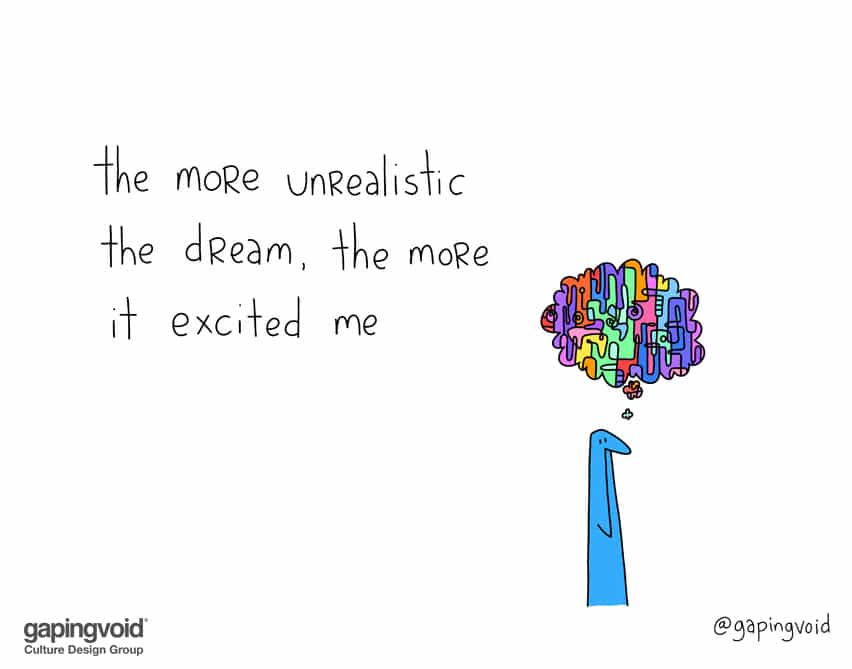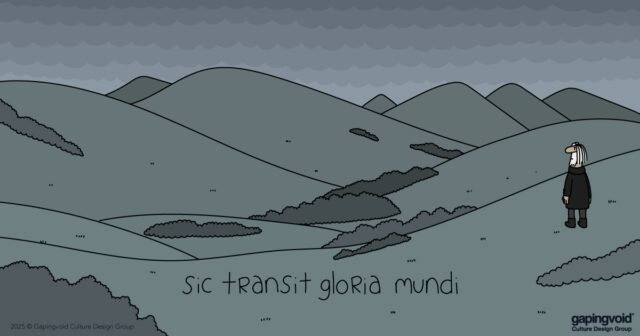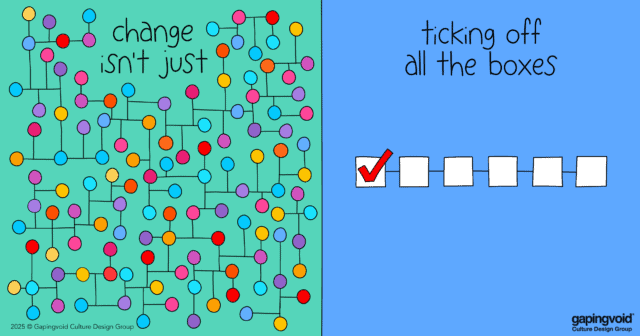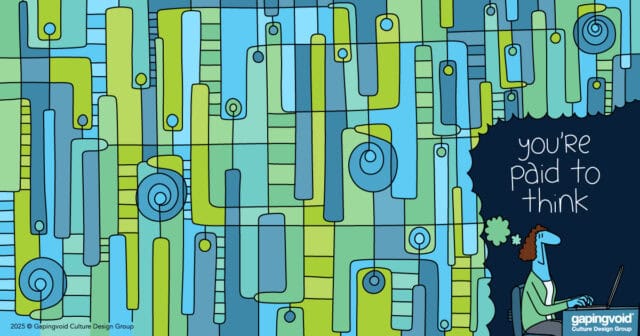
Tom Goodwin, Advertising Thought Leader, public speaker, author and Head of Innovation at Zenith Media. He’s one of the most interesting voices in the advertising business today.
From around 2004 I worked at a very trendy Creative agency in London.
Quite often you’d book a meeting room for an important client, and none of the computers would work (and this was when computers were simple).
There were people whose job it was to tour every meeting room and check it was all working before 8:30 am, but we were all a bit cool so we didn’t enforce this.
Quite often the meeting rooms you’d booked would be triple booked.
Maria, who owned the room schedules, was open to off days, and she prioritized the people she liked. Getting a meeting room was less logistics and more negotiation skills.
Each day was generally carnage. Meetings thrown out of rooms, clients to appease, computers to fix, it made us all deeply resourceful. Our job was to be the swans, a picture of grace while the feet frenetically powered us forward under the surface.
I worked recently in an office with free bagels every Friday. Without fail, every Friday 1/4 of the bagels would remain, and every pot of cream cheese would be scraped shiny. There was too little creme cheese each week. Don’t even start me on the orange juice situation. I told senior management 4 times, and nobody once replied. They certainly thought I was strange.
The excuse behind all this mess is that these things are boring.
If you book a meeting room and the time slots are adhered to, that somehow it makes us less “creative”.
There is a sense the act of making a 2003 MacBook work with a sound system and early Pioneer LCD TV makes us resourceful.
That a senior manager’s job is beyond bagels, above orange juice, it’s to “do what matters”.
This is all rooted in the belief underpinning our industry “that we are in a creative industry”
This means contact reports are not essential, they are dull, it’s what lawyers would do. That turning up on time is for losers, that sending out agendas for meetings is very corporate. It’s a cultural excuse that means saying “no” to meetings is a bit snobby, that all emails should be long and friendly, that we must talk about each other’s weekends for hours in every meeting on a Monday and the same on a Friday.
We forget that rules and creativity go together.
That by limiting time spent in meetings allows us to go to the pub and really get to know each other.
By not setting “boring” limits, we deny ourselves the mental space to get ideas outside the office, from doing the things we never have time for because we’re stuck in the very meetings we should have declined.
We forget to value our own time and have the audacity to think maybe we’re too good to do our own expenses.
Above all else, we forget the direction of causality with fun environments, great culture, and great work. A pool table ends up in an office where life is fun, people drinking in the office on Thursdays happens because people feel compelled to hang out with each other, great office parties are not orchestrated but swell up from the bottom.
We have to stop managing by initiative or creating culture from above, we have to celebrate the behavior that leads to respecting each others’ time, loving the value and ideas they bring, and part of this is the boring process and rigidity that gives us the firmness to push off in new creative ways.
by Tom Goodwin
@tomfgoodwin



